英语试讲课件
- 格式:wps
- 大小:52.50 KB
- 文档页数:4
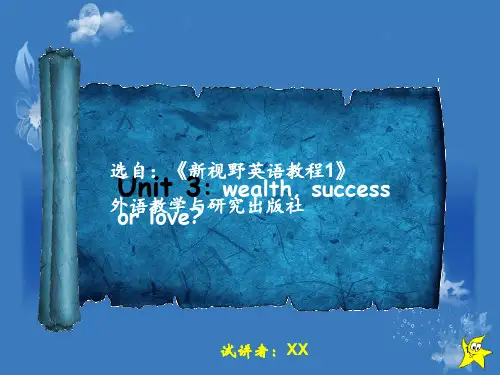
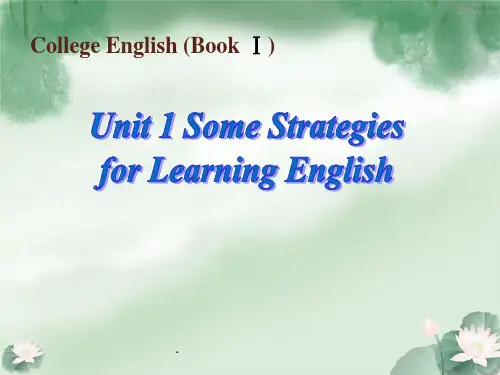
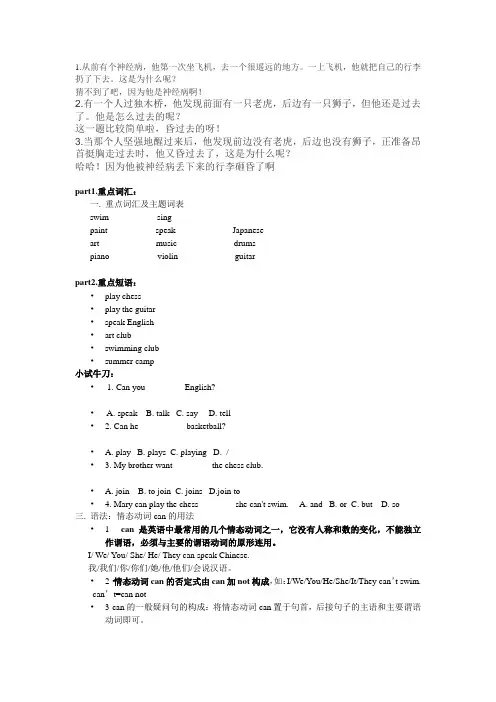
1.从前有个神经病,他第一次坐飞机,去一个很遥远的地方。
一上飞机,他就把自己的行李扔了下去。
这是为什么呢?猜不到了吧,因为他是神经病啊!2.有一个人过独木桥,他发现前面有一只老虎,后边有一只狮子,但他还是过去了。
他是怎么过去的呢?这一题比较简单啦,昏过去的呀!3.当那个人坚强地醒过来后,他发现前边没有老虎,后边也没有狮子,正准备昂首挺胸走过去时,他又昏过去了,这是为什么呢?哈哈!因为他被神经病丢下来的行李砸昏了啊part1.重点词汇:一. 重点词汇及主题词表swim singpaint speak Japaneseart music drumspiano violin guitarpart2.重点短语:•play chess•play the guitar•speak English•art club•swimming club•summer camp小试牛刀:• 1. Can you ________ English?• A. speak B. talk C. say D. tell• 2. Can he __________ basketball?• A. play B. plays C. playing D. /• 3. My brother want ________ the chess club.• A. join B. to join C. joins D.join to• 4. Mary can play the chess________ she can't swim. A. and B. or C. but D. so三. 语法:情态动词can的用法•1·can是英语中最常用的几个情态动词之一,它没有人称和数的变化,不能独立作谓语,必须与主要的谓语动词的原形连用。
I/ We/ Y ou/ She/ He/ They can speak Chinese.我/我们/你/你们/她/他/他们/会说汉语。
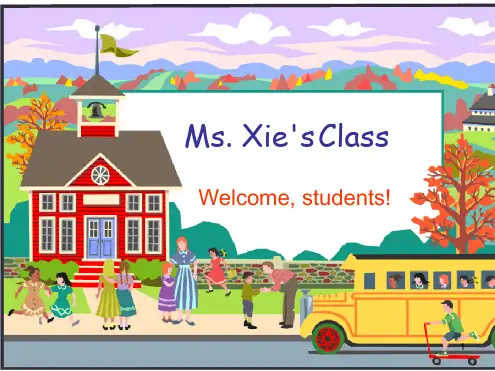
![大学英语15分钟试讲[优质ppt]](https://uimg.taocdn.com/9c05d77bdd36a32d72758111.webp)
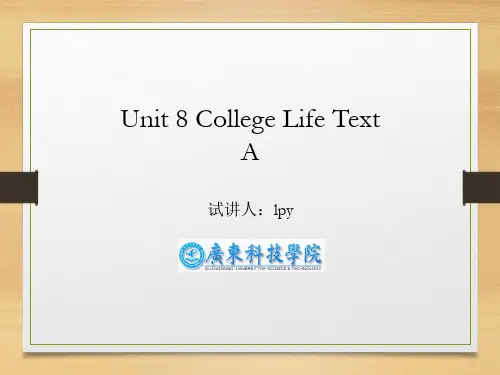

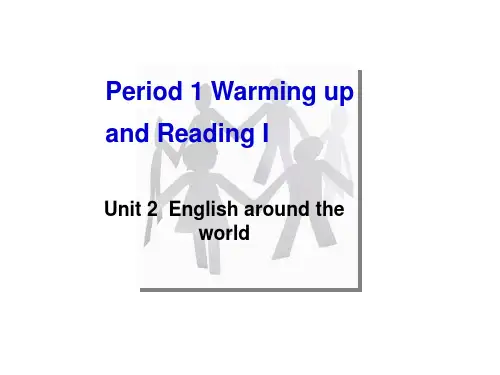


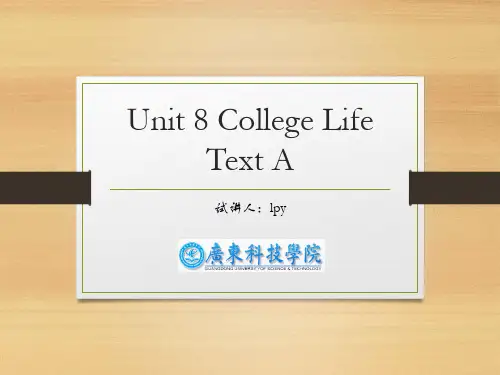
Unit 10 Where did you go on vacation?
Period 3 section B(1a—2c)
教学内容:
Topic Talking about your vacation
Function Talk about past events
V ocabulary delicious cheap expensive crowed awful
Structure Where did…? What did…? Did you/he…?及回答How was/were…?
Where did V era go on vacation ? Did V era like the vacation?
How were the stores? They were very expensive.
Activity Make up a story make a survey
Grammer Single past of regular and irregular verbs Adjectives
Teaching aids Multi-media
教学重点:
1 The vavulary: delicious cheap expensive crowed awful
2 Language : Where did you/they/he/she go on vacation ?
I/They/He/She went to Japan.
How were the museums/people/stores?
They were crowed/expensive/friendly.
教学难点:Use the language to talk about past events。
教学目标:
一、语言技能目
1 能正确运用where和how引导的特殊疑问句询问假日活动
2 能正确使用表达感想的形容词,如:awful delicious cheap expensive ,etc
二、情感目标
1 培养学生主动参与、乐于合作的学习态度,培养他们的合作精神。
2 通过交流所见所闻和感想,增进学生间的相互了解
教学设计:通过例子引进句型,设置会话情景来激发学生兴趣,调动学生学习主动性。
利用媒体图片进行句型练习,达到最大量的语言输出,体现师生互动。
教学过程:
Step 1 Warming-up and Revision
1 duty report , get others ask questions.
2 Memory challenge :show the pictures and get to remember a minutes, then get to say.(通过以记忆挑战的方式激发学生兴趣,起到课堂热身的作用,同时也无形中复习了动词的过去式形式)
Step 2 Presentation
Show some pictures about my visit to wuyi mountains
T: Where did I go on vacation?
S: You went to Wuyi mountains. How was your vacation?
T::It was great. Would you like to know more about my vacation?
S: yes.
T: Look at the picture, How is the food?
S: It’s delicious (help to say)
T: yes It’s nice, It’s delicious. (Read after to me)
How were the stores? Look, this jacket is…yuan and that one is ….yuan. so I think this jacket is too expensive, and that one is cheap(Read and learn expensive ,cheap)
In the same way , present and teach: crowd and not crowd.
Get to learn and remember the words 这个活动主要还是激发学生的积极性,在复习巩固上一课所学的形容词的同时,学习了新的形容词“delicious. cheap. expensive crowd”,并让学生进行了句型的回顾和操练。
Step 3 Practice the new words
1 Open the book at p 6
2 !a get to match the new words with the pictures.
Then check and read again get to ask and answer in pairs
S1: How was the ring?
S2: It was expensive.
2 Finish 1b
3 Get to ask and answer what do they think of the things and people in Dongtou. Then fill
the adj words in the blanket.(进一步巩固所学的形容词的运用,)
Step 4 Listening and practice
1 T: Vera had a vacation . where did she go? Did she like her vacation? Now let’s listen to the tape and answer these questions.Finish 2a
Check the answers. Ask two Ss to answer the questions.
2 Listen again and fill in the chart.(2b)
3 Get to make a dialogue about Vera’s vacation in pairs.
4 Ask some to give the report about Vera’s vacation.
Step 5 Talk show
Choose a place to have a trip according the tour guiding,and make a new conversation with your partner.巩固所学内容,提高学生交际能力。
Step 6 Groupwork
1 -Make a survey
Ask your classmates about their vacation.
Where did you go on vacation?
How was your vacation?
Name Place Weather Activities Food Stores People
Mary Hong Kong sunny, warm,
humid went to the
beaches
delicious expensive Not very friendly
Jim …
…
…
2 An interview提高学生交际能力的同时。
以合作学习模式,锻炼学生的组织能力,培养学生团结协作的精神。
3 write their vacation
Homework:1.Talk about you vacation and write down.
2. Finish the exercises in exercise book (I)。